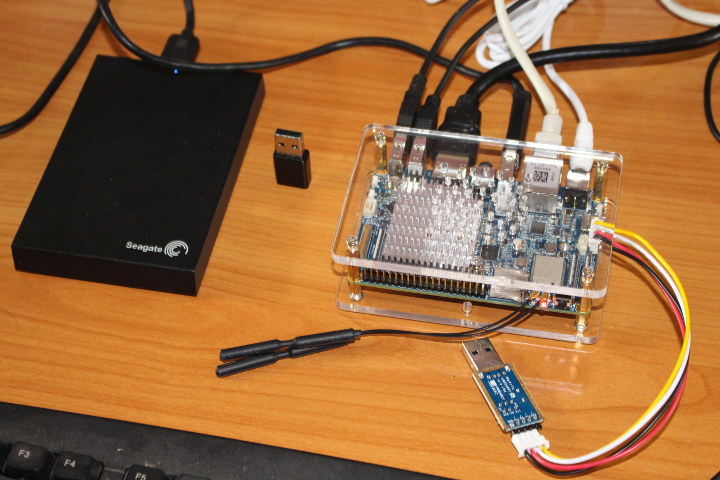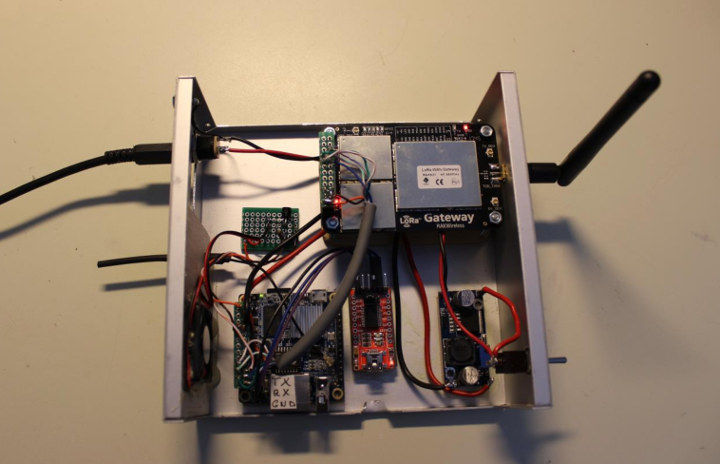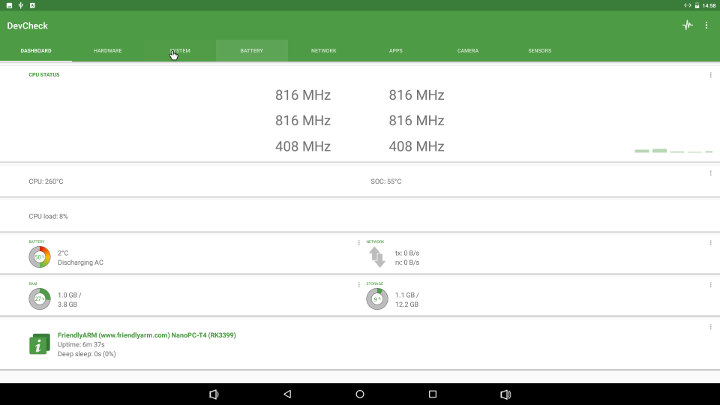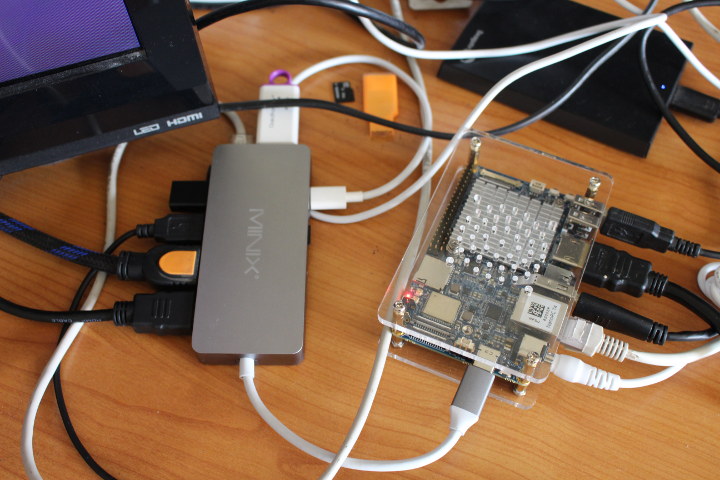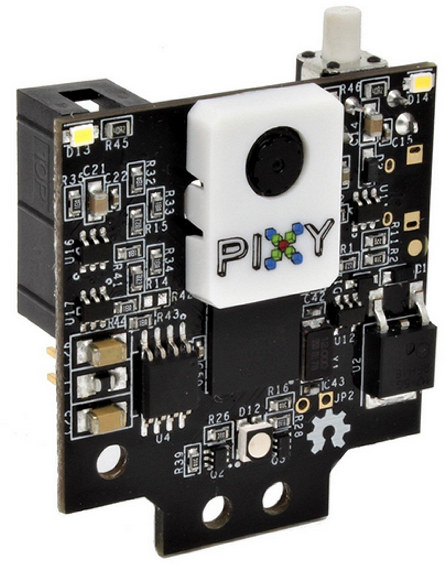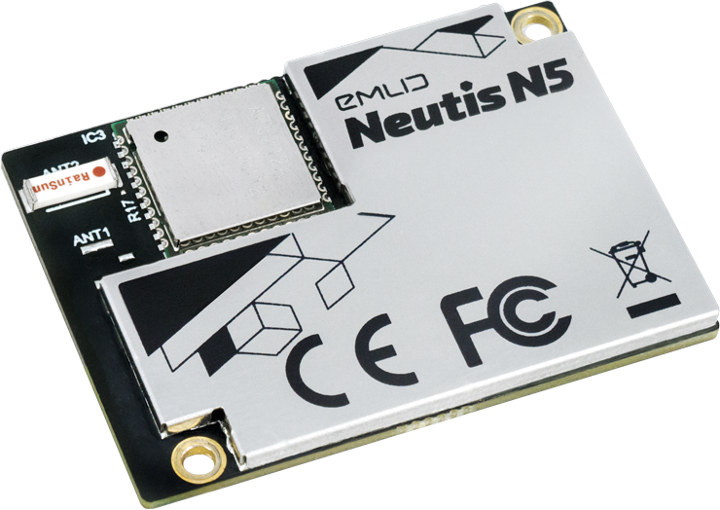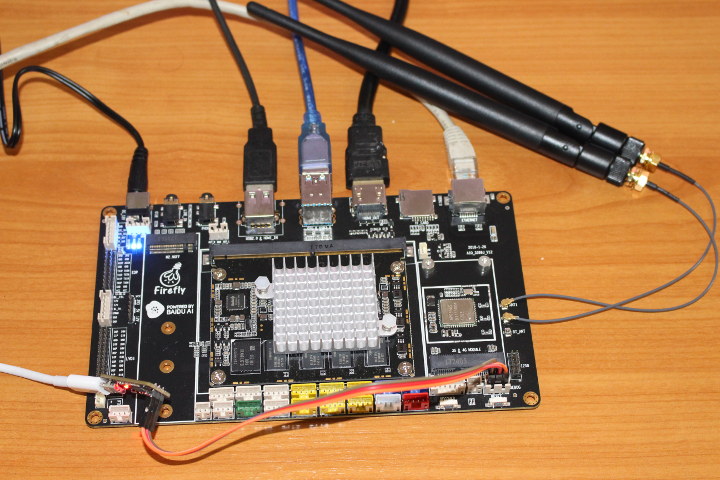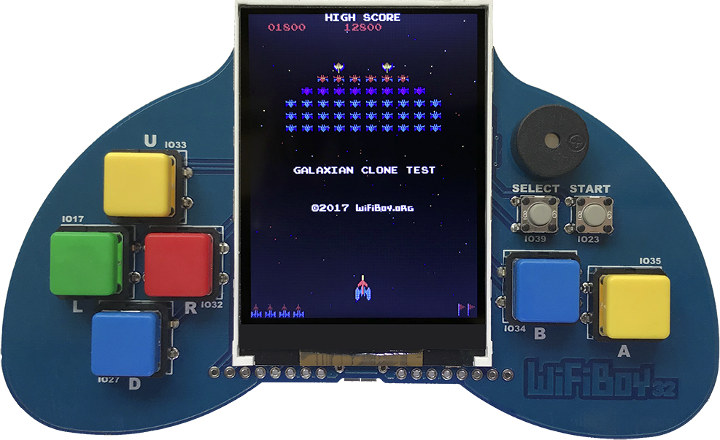NanoPC-T4 is one of the many Rockchip RK3399 SBCs now available, and as we’ve seen in the “unboxing review” the company sent me two samples. So far, I’ve been reviewing RK3399 boards with Linux distributions in posts such as “Checking Out Debian and Linux SDK for VideoStrong VS-RD-RK3399 Board” and more recently “AIO-3399J Development Board Review with Ubuntu 16.04“. But in this NanoPC-T4 review, I’ll switch to Android, specifically Android 7.1, as I’ll soon try Android 8.1 on Firefly-RK3399 which might make for an interesting comparison between the two versions of the OS, before switching to Linux with Pine64 RockPro64 board which I received yesterday. First Boot with NanoPC-T4 Development Board I had already assembled the board in the first part of the review, so I just added the two WiFi antennas, the optional USB to serial debug board, and connected various accessories and cables from left to right: USB […]
How to Build an Orange Pi Zero LoRa Gateway
LoRa gateways tend to be fairly expensive, especially because of the radio part, but anything that may help lower the cost is probably welcomed. And one way to to do that is to use dirt cheap boards like Orange Pi Zero as Edzelf did, by combining the low cost Arm Linux board ($15 shipped) with Rak wireless RAK831 concentrator module kit ($143) via a custom cable, and a power supply board. All assembled into a metal case. RAK831 communicates with Orange Pi Zero over an SPI connection. While some other Orange Pi boards are suitable for the project, note that Orange Pi Zero Plus lacks a spare SPI interface, and can’t be used with this particular application. A fan was also added for cooling, a well as a USB serial debug board for debugging purpose, but it can be removed once the gateway is in the field. Software-wise, Edzelf installed […]
Checking out DevCheck System Info App for Android on NanoPC-T4 Development Board
There are already a few ways to get system information in Android. The most obvious is just going into the Settings menu, another solution more detailed but less convenient is to access the terminal via adb or an app and run some commands, and finally you can also install apps such as CPU-Z. I’ve been made aware of a new system info app recently called DevCheck, and decided to try it on an Android development board, namely NanoPC-T4 RK3399 SBC. Those apps are often mainly tested on smartphones, so running them on TV boxes or boards do not always yield perfect results. We’ll see. The dashboard section looks good as the app correctly detects six cores and show difference frequencies for each. The hardware part appears to show two clusters one supporting frequencies between 408 MHz and 1416 MHz (Cortex-A53 cores) and another between 408 MHz and 1800 MHz (Cortex-A72 […]
A Quick Look at MINIX NEO C Plus USB-C Adapter, and Windows 10 M.2 SSD Card for N42C-4 Mini PC
A couple of weeks ago, MINIX announced their NEO C Plus USB type C adapter with 9 ports including two HDMI outputs. The company has now sent me samples of the adapter, as well as an M.2 SSD for MINIX NEO N42C-4 pre-loaded with Windows 10 Pro. I’ll first have a look at the accessories I received before testing MINIX NEO C Plus adapter with Android 7.1 running on NanoPC-T4 board. MINIX NEO C Plus and M.2 SSD Unboxing I received two USB-C multiport adapter with dual HDMI output which are identical, except for the color with one white version and a silver version, as well as a “128GB M.2 SSD for MINIX NEO N42C-4”. The USB-C adapter comes with a bilingual English-German user manual. We learn some interesting information and limitations from the device. First, the adapter is only certified to use with MacBook and MacBook Pro laptops, and […]
PIXY2 Computer Vision Camera Works with Arduino, Raspberry Pi, and Other Boards
Cameras may be used to take holiday photos, but when integrated into robotics projects there may purpose is usually to detect objects and/or patterns. We’ve previously covered specialized computer vision camera such as the Linux based JeVois camera powered by Allwinner A33 processor, HICAT.Livera machine vision board, or STMicro STM32F7 Arm Cortex M7 powered OpenMV Cam M7 open source computer vision board. Another popular option is PixyCam PIXY camera that was first launched via a Kickstarter campaign in 2013. The company has recently introduced an updated version, aptly named PIXY2, which can still detect objects – just faster at 60 fps-, and also includes new algorithms to detect and track lines or barcodes. PIXY2 camera specifications: MCU – NXP LPC4330 dual core Arm Cortex M4/M0 @ up to 204 MHz with 264KB RAM, 2MB flash Image sensor – OnSemi (previously Aptina) MT9M114 1296×976 resolution with integrated image flow processor Lens […]
Neutis N5 Allwinner H5 CPU Module and Development Kit are now up for pre-order
Emlid Neutis N5 system-on-module (SoM) powered by Allwinner H5 processor was unveiled right before Embedded World 2018 in February with an expected launch date scheduled for April. There have been some delays but the Allwinner H5 CPU module and corresponding development kit are now up for pre-order with delivery slate for the end of August. Neutis N5 SoM Neutis N5 specifications: SoC – Allwinner H5 quad core Arm Cortex-A53 processor @ up to 1.3 GHz with Arm Mali-450MP4 GPU System Memory – 512 MB DDR3 RAM Storage – 8 GB eMMC flash Connectivity – Wi-Fi 802.11 b/g/n. Bluetooth 4.0 dual-mode BLE with on-board antenna and u.FL connector for optional external antenna HW Security – Tamper-resistant dedicated crypto chip (secure element) for storing cryptographic keys, unique ID, random number generation and more 2x DF40 80-pin board to board X1 and X2 connectors with 38x GPIOs 4x UART, 3x I2C, 2x SPI, […]
AIO-3399J Development Board Review with Ubuntu 16.04
Regular readers will know that Firefly team sent me several of their Rockchip boards for evaluation, and I started with a review of ROC-RK3328-CC development board powered by Rockchip RK3328 processor. This time, I went with the high-end AIO-3399J board comprised of a features-packed baseboard and a Rockchip RK3399 system-on-module. Just like with the previous review, I’ve decided to focus on Linux support, in this case Xunbuntu 16.04, and I’ll do an Android review on the company releases Android 8.1 for Firefly-RK3399 board. First Boot with AIO-3399J Board Before booting the board, I inserted the heatsink, and connected the provided WiFi antennas. I also connected some devices and cables, including a mouse, the male to male USB cable to the top USB 3.0 (OTG) port for firmware update, a HDMI cable to my TV, and Ethernet cable, as well as the serial debug board. The final step was to connect […]
WiFiBoy32 is an ESP32 Portable Game Console and IoT Devkit
I’ve noticed that ever since Hardkernel launched their ODROID-GO “10th anniversary” portable game console based on ESP32 processor, most of the talk on IRC and social media is about this new toy, and people almost seem to have forgotten about the company’s Arm Linux boards 🙂 But recently, I’ve come across a somewhat similar ESP32 device called WiFiBoy32 that acts as both a portable game console and an IoT development kit. WiFIBoy32 specifications: Wireless module – ESP32-WROOM-32 wireless module with 802.11 b/g/n WiFi and Bluetooth 4.2 LE connectivity Display – 2.4″ 240×320 color SPI TFT LCD display Expansion – 2x 8-pin through holes with GPIOs, SPI, DAC, I2S,ADC, VP/VN, and power signals (3.3V, Vin, GND) Misc Top – 6x large gaming buttons, select and start push buttons, buzzer Bottom – PROG and RESET buttons, user LED USB – 1x micro USB port for power and programming (CP2102) Dimensions – 120 […]


